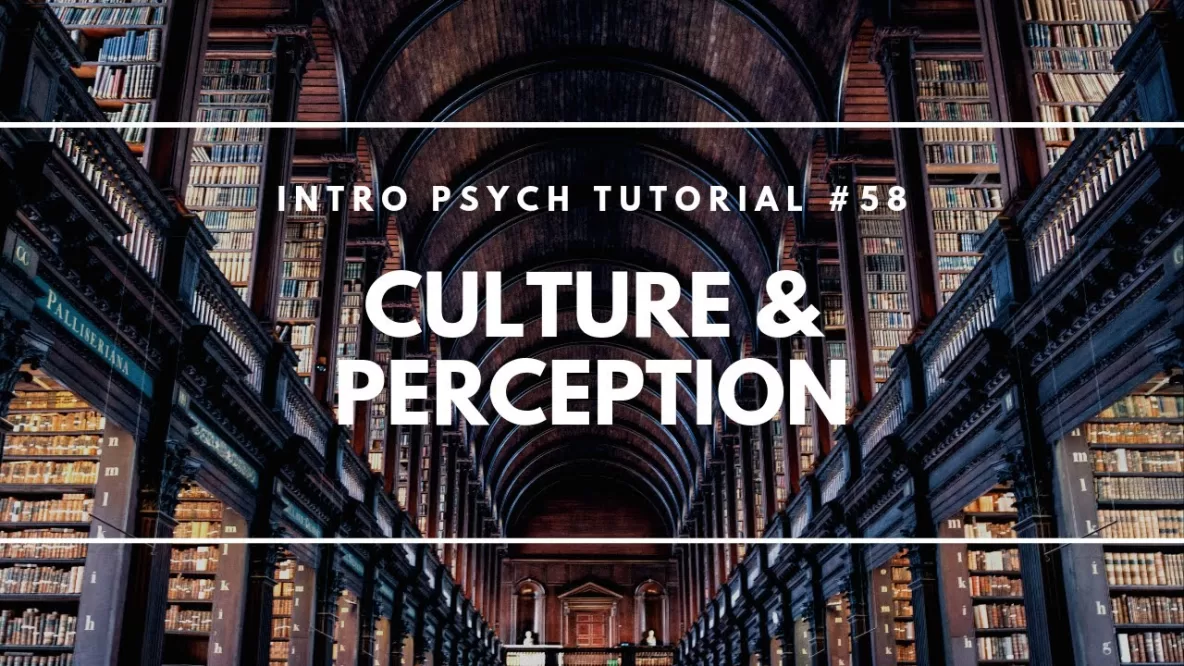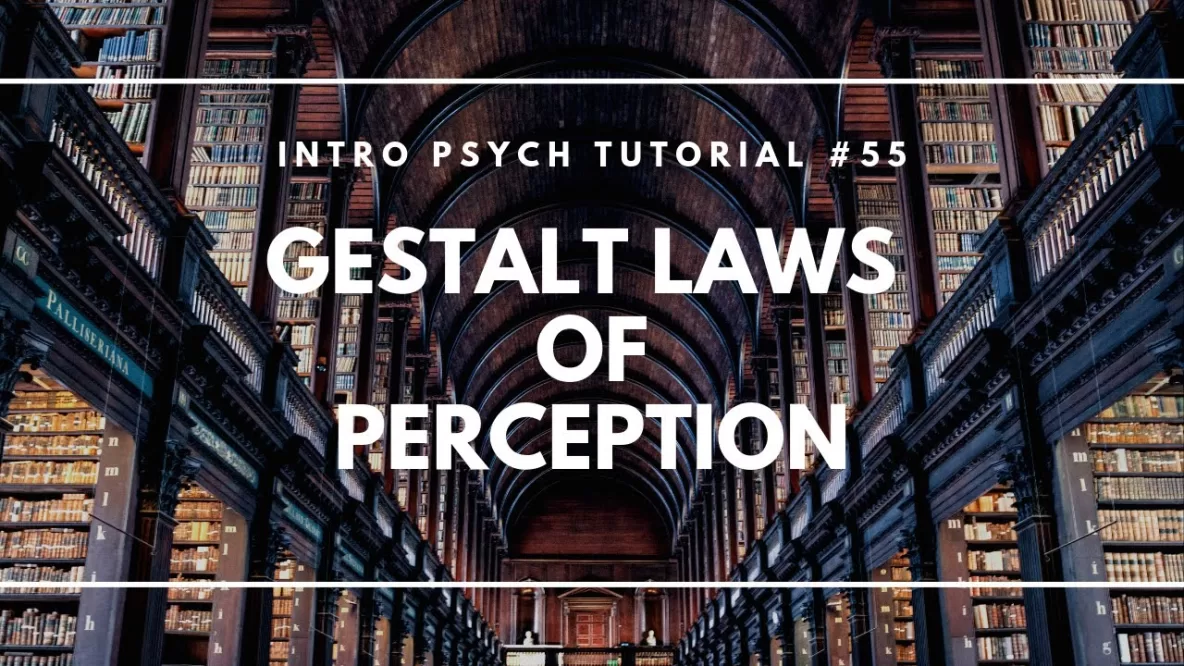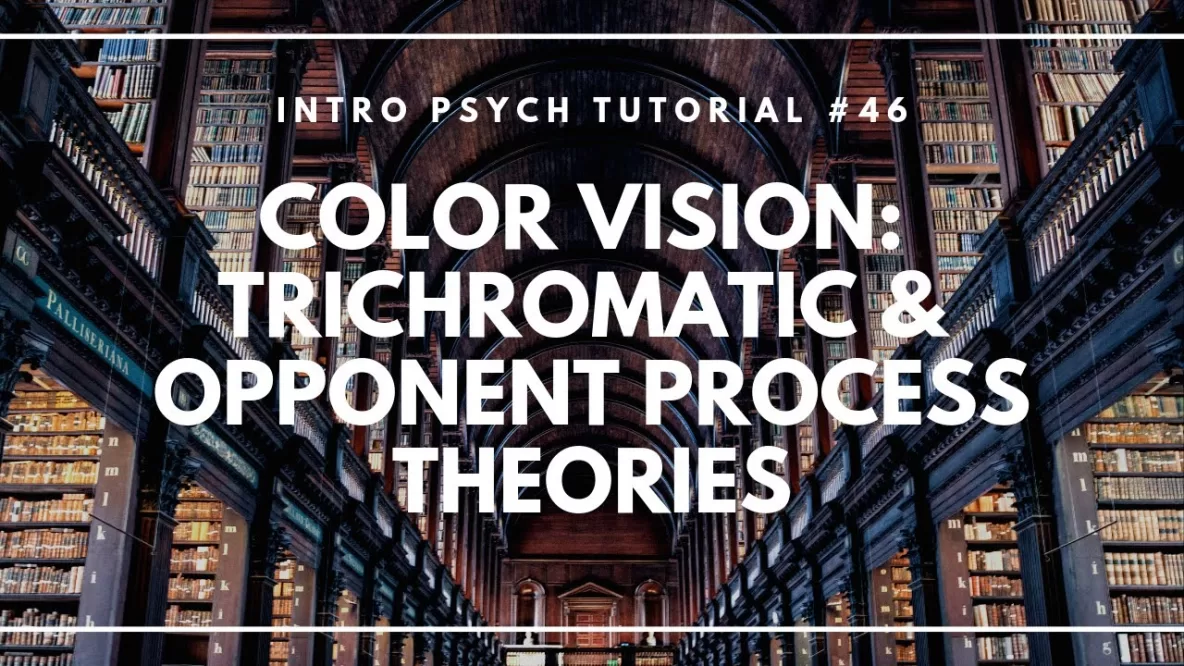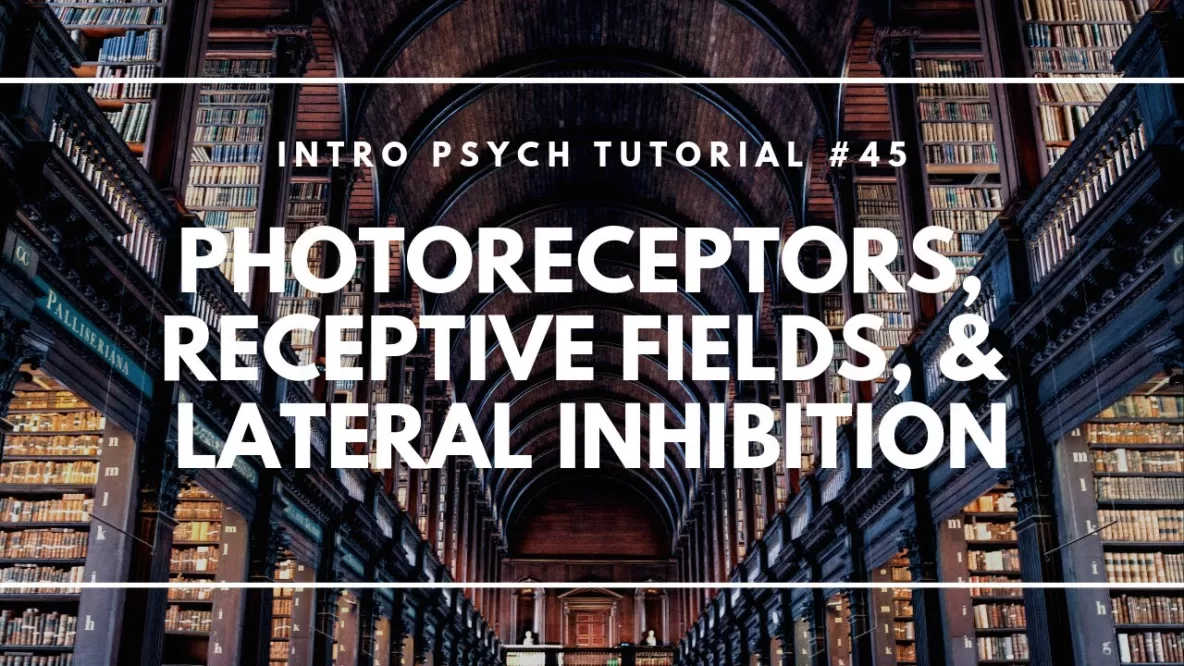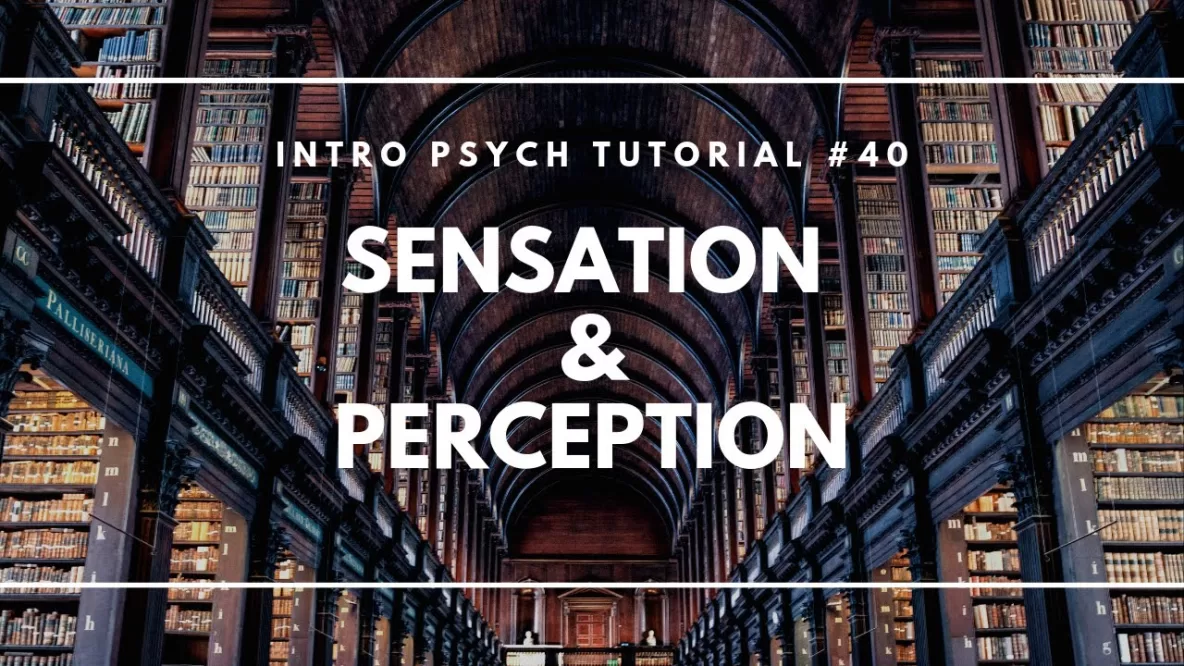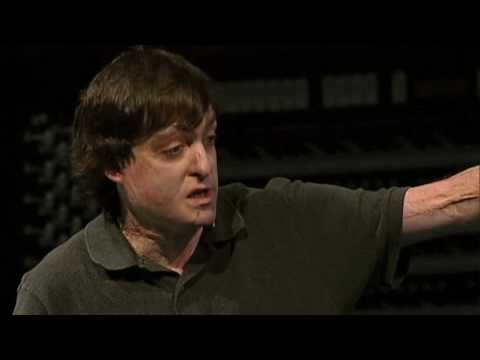In this video I consider the role of culture on perception. The fact that we must learn how to perceive the world creates the possibility that our culture can shape our perception. I provide one example of this, known as the carpentered-world hypothesis, which can used to explain susceptibility to … Read More
Gestalt Laws of Perception
In this video I focus on perception and how we make sense of the information coming in from our senses. Gestalt laws refer to general principles for organizing and interpreting sensory information. I provide visual examples for several gestalt laws including closure, proximity, similarity, continuity, simplicity, and common fate and … Read More
Color Vision: Trichromatic and Opponent Process Theories
In this video I discuss how color vision occurs and explain two important theories for understanding color vision; Young-Helmholtz Trichromatic Theory and Opponent Process Theory. Along the way I describe how some people are able to see ultraviolet (UV) light, a trick you can use to see infrared light, and … Read More
Photoreceptors, Receptive Fields, and Lateral Inhibition
In this video I go into more detail on the retina, describing the two main types of photoreceptors (rods and cones) and how they operate in different levels of light. Next I describe the composition of receptive fields and how retinal ganglion cells communicate differing patterns of light on the … Read More
Introduction to Sensation and Perception
In this video I introduce sensation and perception by explaining the difference between these two related terms. I also define transduction and consider how the organization and interpretation of sensory stimulation involves learning, experience, and the possibility for multiple interpretations and misinterpretations. Don’t forget to subscribe to the channel to … Read More
Dan Ariely on “Decision Illusions”
In this TEDtalk, behavioral economist Dan Ariely begins by describing visual illusions as a metaphor for understanding the “decision illusions” that we make. He notes that we are exceptionally good at vision (and get lots of practice) but not so well-versed in complex decision-making. He then looks at how the … Read More

